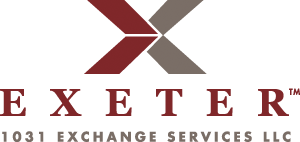Internal Revenue Service Info No. 2004-0230 (IRS Info 20040230)
Internal Revenue Service (I.R.S.)
Information Letters
Released: December 31, 2004
November 16, 2004
Section 1031 — Exchange of Property Held for Productive Use or Investment
Dear ***:
This is in response to your letter, post-marked October 13, 2004. You requested general information regarding a person's qualifications to be a qualified intermediary for like-kind exchanges under Section 1031 of the Internal Revenue Code.
As you know, taxpayers may use a qualified intermediary to facilitate a like-kind exchange. If certain requirements are met, a taxpayer's transfer of relinquished property to a qualified intermediary and subsequent receipt of like-kind replacement property from a qualified intermediary is treated as an exchange with the qualified intermediary. The rules relating to qualified intermediaries are discussed in Section 1.1031(k)-1 of the Income Tax Regulations.
Section 1.1031(k)-1(g)(4)(iii) provides that a qualified intermediary is a person that (A) is not a disqualified person and (B) enters into a written agreement with the taxpayer (the "exchange agreement") and, as required by the exchange agreement, acquires the relinquished property from the taxpayer, transfers the relinquished property, acquires the replacement property, and transfers the replacement property to the taxpayer.
A disqualified person is any person that is an agent of the taxpayer at the time of the transaction. For this purpose, a person who has acted as the taxpayer's employee, attorney, accountant, investment banker or broker, or real estate agent or broker within the 2-year period ending on the date of the transfer of the first of the relinquished properties is treated as an agent of the taxpayer at the time of the transaction. In determining whether someone is an agent of the taxpayer and thus a disqualified person as to the taxpayer, performance of the following services are not taken into account --
(i) Services for the taxpayer with respect to exchanges of property intended to qualify for nonrecognition of gain or loss under Section 1031; and
(ii) Routine financial, title insurance, escrow, or trust services for the taxpayer by a financial institution, title insurance company, or escrow company.
In addition, persons that are either related to the exchanging taxpayer or to an agent of the taxpayer are also disqualified persons. See Section 1.1031(k)- 1(k)(3), (4) and (5).
Section 1.1031(k)-1(g)(4)(i) provides that in the case of a taxpayer's transfer of relinquished property involving a qualified intermediary, the qualified intermediary is not considered the agent of the taxpayer for purposes of Section 1031(a). In such a case, the taxpayer's transfer of relinquished property and subsequent receipt of like-kind replacement property is treated as an exchange. While gain or loss must be recognized if the taxpayer actually or constructively receives money or non-like-kind property before receiving the like-kind replacement property, the determination of whether the taxpayer receives money or other property before receiving the replacement property is made as if the qualified intermediary is not the agent of the taxpayer.
Moreover, for a person to be a qualified intermediary, the exchange agreement must expressly limit the taxpayer's rights to receive, pledge, borrow, or otherwise obtain the benefits of money or other property held by the qualified intermediary. The rules relating to a taxpayer's right to receive, pledge, borrow, or otherwise obtain the benefits of money or other property held by the qualified intermediary are provided in Section 1.1031(k)-1(g)(6).
In summary, any person that is not a disqualified person, that enters into an exchange agreement with an exchanging taxpayer and that performs the functions of a qualified intermediary as set forth in the regulations, as cited above, is a qualified intermediary as to that taxpayer.
We hope this information is of some assistance to you in making a determination as to who may be a qualified intermediary. If you have any questions, you may contact *** of my office at *** (not a toll-free number).
Sincerely,
Robert A. Berkovsky
Branch Chief
Office of Associate Chief Counsel
(Income Tax & Accounting)
END OF DOCUMENT
